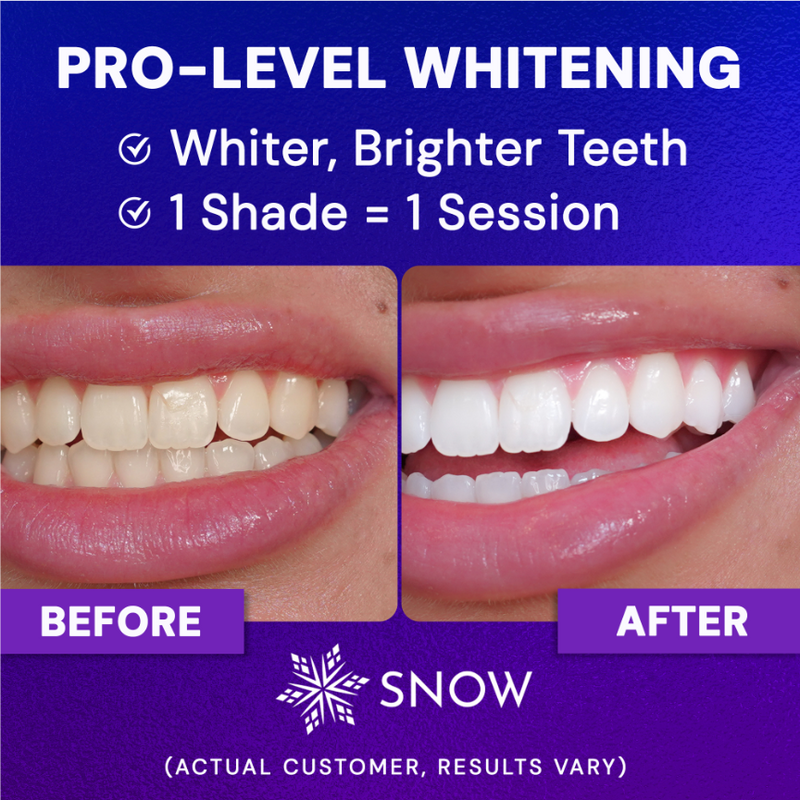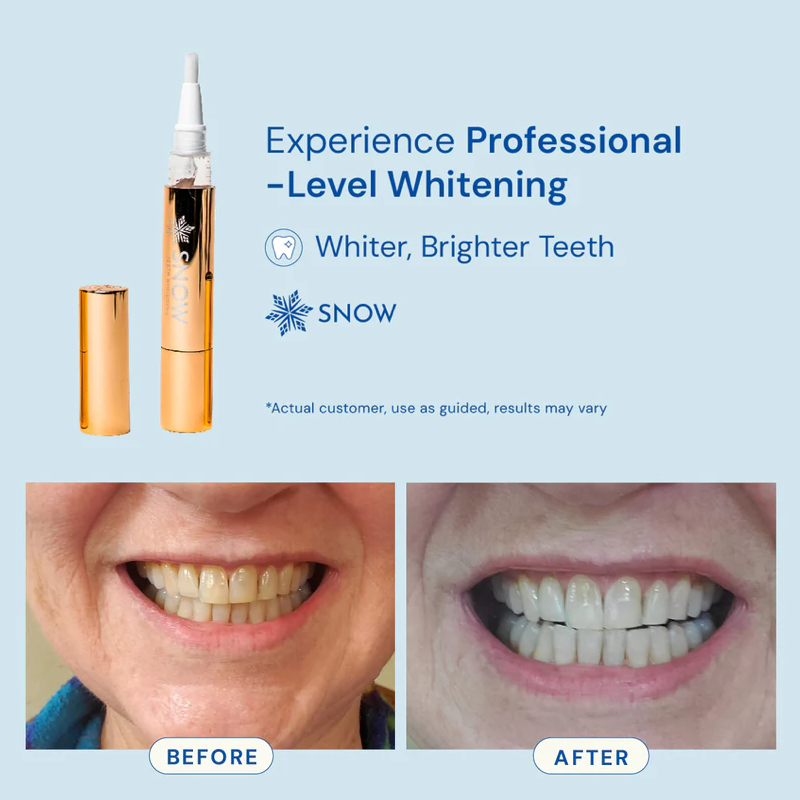An overbite is one of the most prevalent dental disorders that may be treated with orthodontic therapy. An overbite is defined as an excessive overlap of the top and bottom teeth. A correct bite necessitates a modest overbite (usually 1 to 2 mm), but the front teeth should fit over the bottom without leaving a gap. Excessive overbite occurs when the overlap is significant.
Several types of overbites exist, each with its own set of complications in therapy. As a result, each situation is unique, and the orthodontist creates a customized treatment plan to straighten teeth safely and successfully in each case. Overbites are one of the most common reasons individuals seek orthodontic treatment, and orthodontists are experts at resolving these issues.
This article will teach you all you need to know about an overbite, including what they are, how they occur, and how orthodontists may correct them.
WHAT EXACTLY IS AN OVERBITE?
An overbite is a kind of malocclusion, or improper biting, that causes the front teeth to protrude outwards over the jaw. Overbite is sometimes referred to as 'buck teeth'; however, this is a non-medical phrase that may be deemed insensitive. Both toddlers and adults can suffer from an overbite.
In most cases, symptoms are apparent. However, mild overbites may be less perceptible. Overbites commonly cause the following symptoms:
BITE PAIN
Teeth must be properly aligned to operate effectively. The top and bottom rows of teeth will not bite together correctly if the upper jaw is not properly positioned. This might result in jaw discomfort as well as trouble chewing and speaking.
Overbite-related jaw difficulties can cause discomfort and complications such as earaches, headaches, jaw stiffness, and neck pain. In an untreated overbite, poor jaw posture can cause considerable discomfort that can intensify.
PSYCHOLOGICAL ISSUES
The look of an overbite, in addition to the discomfort of the malocclusion, can cause a variety of mental health concerns. Lower self-esteem, nervousness, and not wanting to smile are all potential issues.
A dental specialist will need to analyze the severity of the disease and identify the best course of treatment to correct an overbite. Orthodontic therapy is used in many approaches to repair an overbite and is extremely successful, especially in youngsters.
An oral surgeon needs to establish a treatment strategy in extreme situations. Most overbites respond adequately to the most acceptable therapies, but repairing a severe overbite in an adult is difficult, time-consuming, and expensive in most instances.
WHAT IS THE DISTINCTION BETWEEN AN OVERBITE AND AN OVERJET?
Overbite and overjet are expressions that are sometimes used interchangeably. This is unsurprising given the similarities in the conditions. Many individuals with overjet teeth also have an overbite, or deep bite. However, there is a distinction between overbite and overjet teeth.
Overjet is used to describe the space or distance between the top and bottom teeth. If there is excessive overjet, this is a class II malocclusion. There are division 1 and division 2 as part of class II bite. Normal bite is class I. Class II is excessive overjet or an overbite. Class III is when the bottom teeth sit in front of the top teeth.
When a patient's front top teeth flare out over the bottom teeth, they are said to have overjet teeth, often known as protruding teeth.
WHAT CAUSES OVERBITES?
Overbites occur most frequently in youth, and the most prevalent reason is heredity. A child's mouth may be too big or too tiny to accommodate teeth appropriately.
Long-term pacifier and bottle usage, finger sucking, thumb sucking, and forcing the tongue against the back of the teeth can all contribute to an overbite.
DIFFERENT TYPES OF OVERBITES
Overbites are classified into two types:
SKELETAL OVERBITE
A skeletal overbite is caused by uneven jawbone growth, which causes the jaws and teeth to grow incorrectly.
The size and form of a child's teeth and jaw are the most prevalent causes of an overbite (Due to genetics). The jawbone and lower teeth can protrude or push out too far, causing the upper teeth to jut out.
A person's mouth might be too wide or small to accommodate teeth effectively. If addressed, this malocclusion can lead to overcrowding, crooked teeth, and spaced teeth.
DENTAL OVERBITE
An extrinsic disrupter of dental development causes a dental overbite. An overbite can be caused by childhood behaviors such as tongue thrusting or forcing the tongue on the back of the teeth. Long-term pacifier, bottle usage, and finger and thumb sucking are parafunctional behaviors.
These practices might aggravate the issue if a youngster already has an overbite due to genetics. Breathing problems, such as sleep apnea, are also associated with malocclusion.
Overbite can also be caused by, but is not limited to, the following factors:
- Loss of infant's teeth without treatment with space maintainers.
- Sleep apnea and upper airway respiratory syndrome are examples of breathing problems.
- Nail-biting and chewing on hard things regularly.
- Teeth grinding.
- Temporomandibular joint disorder (TMD).
WHAT ARE OVERBITE CORRECTIVE TREATMENTS?
Children and adults have distinct overbite repair needs. If an overbite is discovered in childhood, therapy may include:
- Growth modification devices, often known as palate expanders, are used to reposition the jaw during growth spurts.
- Braces are used to shift all of the teeth into proper alignment gradually.
- Baby teeth or permanent teeth are removed to make way for adult teeth.
- Retainers are used to keep the teeth in place after removing braces.
Treatment for adults may include:
- Only the teeth impacted by the overbite will be moved with clear braces.
- Surgery to realign the jaws.
- Teeth extraction to make place for the remaining teeth.
WHAT HAPPENS IF YOU DON'T TREAT AN OVERBITE?
Teeth, jaws, and the temporomandibular joints (TMJ) can all be impacted by an extreme overbite. Unfortunately, while we understand that everyone hopes they could grow out of an overbite, it gets worse as you get older since the bite progressively deepens with age.
An untreated overbite/deep bite can lead to several issues, including:
- Making you feel self-conscious about your smile and attractiveness.
- Because it is more difficult to clean your teeth adequately, you are more likely to develop tooth decay and gum disease.
- Teeth wear unevenly.
- TMJ and jaw discomfort, which can cause headaches, neck pains, and ear pain.
- Having difficulty chewing.
- Speech issues.
- Breathing issues, including sleep apnea.
- In situations with an impinging overbite, bone and tooth loss can occur.
- A greater chance of harm to the top front teeth.
WHAT EFFECT DOES AN OVERBITE HAVE ON YOUR DENTAL HEALTH?
Besides the cosmetic look, biting troubles, and jaw pain, an overbite left untreated can be the source of various other dental disorders. Hence it is critical to correct an overbite. Here are some of the probable consequences of an untreated overbite:
Tooth decay: If you have an overbite, you are more prone to grind away the enamel of your teeth due to the misalignment. As a result, your teeth decaying is far more likely. In many circumstances, this can lead to infection and tooth loss.
Gum disease: Severe overbites can cause gum disease since gums are not designed to come into touch with or wear away in a healthy bite. An overbite can lead to periodontal disease and other disorders such as gingivitis or receding gums.
TMJ issues: In extreme circumstances, TMJ diseases can occur in persons with untreated overbites. Without therapy, you may find it hard to control your jaw and do fundamental functions like eating and talking.
Even with good dental care management, the risks associated with an overbite might make it hard to prevent problems that would otherwise be prevented in having a healthy smile. With an overbite, the faster you get therapy to fix it, the better the outcome.
TREATMENT OPTIONS FOR AN OVERBITE
Adults and children have varied treatments for an overbite. Treatments are often more straightforward and less intrusive in children since their teeth are considerably more amenable to correction. Adult therapies are more time-consuming and have a more significant impact.
The following are some possible treatments for an overbite:
- Braces may be the initial line of defense. If braces are ineffective, tooth extraction may be required to allow the other teeth to move appropriately. For the most severe adult instances, jaw surgery may be the only choice.
- Retainers have a strong influence on tooth growth. Thus they function well for most youngsters. Other straightening devices are also available. Baby tooth extraction will assist permanent teeth in coming in straighter.
The optimal therapy for an overbite will be determined by several criteria, including the individual's age and the severity of the problem. It is always preferable to cure an overbite in childhood. Therefore parents should be aware of their child's issues and address them as soon as possible.
SUMMARY
An overbite is a hereditary condition that causes the front teeth to protrude over the jaw. If left untreated, they can lead to various complications, including tooth, gum, and jaw disorders. In certain circumstances, remedial devices or surgery are used as treatments.
It is essential to have a dental specialist analyze your overbite and determine the best treatment option.
FAQs
WHAT CAUSES THE TEETH TO OVERBITE?
The causes of an overbite are mostly hereditary, with baby teeth behavior occasionally altering jaw form. Pacifier usage later in a child's development and finger or thumb sucking are all causes of an overbite. Another probable reason for populations such as children, teens, and adults is nail biting.
CAN AN OVERBITE BE FIXED?
Your dentist can correct an overbite. They might employ braces to bring your jaw into the proper position gradually. They may also use surgery to realign your bones so that your upper and lower jaws fit together. You may get your overbite fixed no matter what caused it or how severe it is.
IS AN OVERBITE SERIOUS?
If it is not addressed, an overbite might result in significant health consequences. These include permanent damage to teeth due to incorrect alignment and the possibility of jaw pain due to conditions such as temporomandibular joint dysfunction (TMJ).
HOW DO YOU GET RID OF OVERBITE?
When treating an overbite in a kid, a dentist or orthodontist may use braces or other correction devices in addition to other options. Surgery on the jaw may be required to rectify the misalignment in adults with an overbite.
HOW CAN YOU FIX AN OVERBITE WITHOUT BRACES?
The overbite of the majority of people ranges somewhere from moderate to severe. This dental condition is known as an overbite when the upper front teeth overlap the lower front teeth. If the overbite is severe enough, treatment options may include braces or surgery. However, recent developments in orthodontics have made it feasible to correct certain types of overbite without the use of braces.
When it comes to correcting an overbite without the use of braces, some people are turning to invisible aligners as an alternative. Dental disorders can be remedied in a manner that is not only effective but also aesthetically pleasing with invisible aligners. They are generally recommended for mild to moderate alignment concerns; however, an orthodontist or reliable online aligner supplier can tell you whether they are appropriate for you and whether or not you should have them.





































































